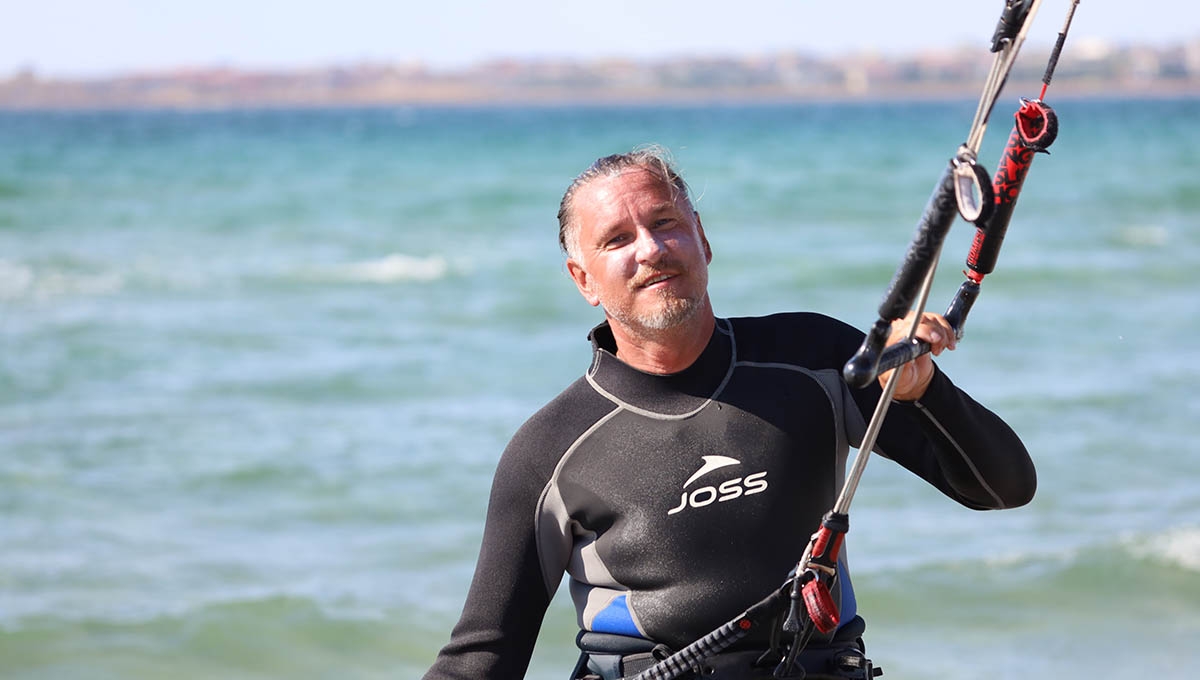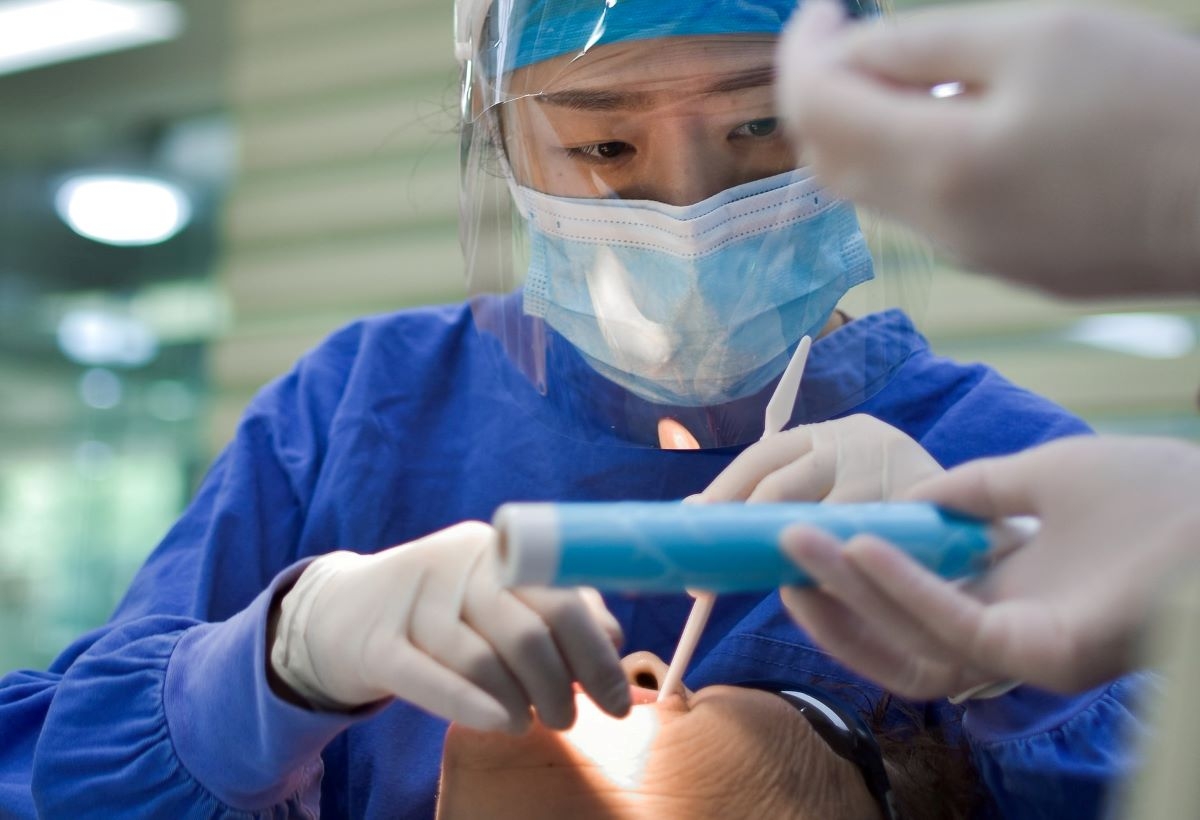
Vitamin D and Testosterone, is Lack of Sunlight Killing Your Testosterone Levels?
Testosterone is an essential hormone for everyone, not just men! Low testosterone is often associated with poor libido in men, but it also plays a part in women's energy, physical strength and sexual drive.
In males, testosterone peaks in early adulthood, but it is an important hormone for our health as we age and is essential for a lot of biological functions, such as:
- Bone and muscle mass
- Fat storage
- Production of red blood cells
- Sexual and physical health
Natural testosterone levels tend to fall as you age, but drastic drops are more noticeable and can lead to symptoms of low testosterone (low T), for example:
- Anaemia
- Decreased libido
- Difficulties with memory and concentration
- Erectile dysfunction
- Fatigue
- Increased body fat
- Loss of body hair
- Loss of muscle mass
- Mood changes like irritability or depression
- Problems with fertility
- Reduced bone density
What causes low testosterone and low vitamin D?
Many factors can cause a sudden drop in testosterone levels, such as health conditions, side effects of medications, excessive alcohol consumption and drug use.
In Canada and other northern hemisphere countries, low exposure to natural sunlight is also thought to be a significant contributor to low vitamin D and testosterone levels.
It is thought that vitamin D can help increase natural testosterone levels in the body. Studies found that men with vitamin D deficiency improved their testosterone levels significantly when they were supplemented with 3,332 international units (IU) of vitamin D daily for one year. However, ensuring you get plenty of exposure to sunshine can help your body produce all the vitamin D you need.
Research has shown that wearing sunscreen can reduce the conversion and absorption of vitamin D in the skin, but sunblock and sunscreen are strongly recommended to help protect people from the risk of skin cancer. This has become a double-edged sword where protecting yourself from one health condition can contribute to another.
Zinc and vitamin D for testosterone
Zinc is an essential micronutrient that helps your body to:
- Fight off invading bacteria and viruses
- Produce DNA and genetic material
- Repair wounds
A zinc deficiency has also been associated with low testosterone levels in men. Zinc is involved with the production and maintenance of natural testosterone levels in the body and is also essential for maintaining sperm quality.
Old studies show that giving men zinc supplements helped raise testosterone levels in those with zinc deficiencies. The best way to boost your zinc intake is to get it from natural sources from the food you eat. Foods high in zinc include red meat, seafood, poultry and dairy products.
Do vitamin D and zinc increase testosterone?
For those struggling with low testosterone levels, it can help to look at what may be the underlying cause of your testosterone deficiency. If you work all day indoors and get little access to natural sunlight, this could present as low testosterone and vitamin D levels.
If you get some skin exposure to sunlight but wear sunblock or sunscreen, your body will produce insufficient levels of vitamin D. Low testosterone in men and women can be caused by inadequate levels of certain hormones such as vitamin D.
Getting enough zinc is vital for testosterone levels because zinc is an essential trace element that you need a small amount of daily. Although we don't need a lot of zinc, our hormonal system cannot function properly without it. So, if you avoid eating zinc-containing foods, it can lead to a sudden drop in testosterone levels. Even a small deficiency in Zinc causes a significant drop in T levels. A lot of the best testosterone booster supplements include both Zinc and Vitamin D to make sure that this is covered.
Ensuring you consume the proper amount of zinc is linked to higher testosterone levels, and a lower amount of testosterone flushed from the body through urination.
Vitamin D3 and testosterone
A few clinical studies indicate that increased vitamin D3 levels can help produce more testosterone in the body when men reach middle age. For those who struggle to get lean and toned, vitamin D3 supplements may help boost your body's production of testosterone, which can help improve results in the gym. As a result vit d makes its way into a lot of testosterone boosters.
While a few studies suggest that increasing your vitamin D3 intake may help men produce more natural testosterone in the body, no definitive studies yet exist, but current research looks promising. The research conducted so far shows that vitamin D3 plays a vital role in helping men boost their testosterone production more naturally.
Eating food containing healthy levels of bioavailable vitamin D3 combined with beneficial sun exposure is an excellent way of providing your body with everything it needs to boost your natural testosterone levels. Foods high in vitamin D3 come mainly from fish and animals, and the highest D3-containing foods include:
- Rainbow trout
- Salmon
- Sardines
- Egg
- Beef liver
How can I safely get vitamin D from sunlight?
Vitamin D is a unique vitamin that most people don't get enough of, especially those living in the Canada. Vitamin D is made from cholesterol held in your skin that converts when exposed to the sun. This is why you must get enough sunlight exposure to help maintain optimal levels of vitamin D.
Sunlight contains ultraviolet B (UVB) rays that provide the energy to synthesise vitamin D from the cholesterol in your skin cells. The vitamin D is then absorbed through the skin and moves to where it is needed in the body. It plays many essential roles in bodily functions and is necessary for optimal health.
Low vitamin D levels have been linked to severe health consequences, including:
- Cancer
- Death
- Depression
- Muscle weakness
- Osteoporosis
It is important to note that the sun’s UVB rays cannot penetrate through windows. So even if you work in an office or workplace with plenty of natural daylight, you can still be prone to vitamin D deficiency.
Exposing your skin to sunlight is by far the best way to boost your natural vitamin D levels, especially if you work indoors or follow a vegetarian or vegan diet low in natural sources of vitamin D.
If you are worried about protecting your face from the sun to reduce wrinkles, wearing a sun hat and sunglasses to protect your eyes and face while getting a good dose of sun on other parts of your body is perfectly fine. Your head and face are small areas, so they will only produce a tiny amount of vitamin D from sunlight.
While exposing your skin to sunlight is the best source of natural vitamin D, taking a supplement can be very helpful for those with chronically low vitamin D and testosterone levels.
Expose your skin around midday for a vitamin D boost
Contrary to popular advice to cover up and avoid the sun between 11 am and 3 pm each day, going for a midday walk, especially in the summer, is the best time to get high-quality sunlight on your skin.
The sun is at its highest point at noon, and this is when UVB rays are the strongest. This means you need to spend less time exposing your skin to the sun to make enough vitamin D to meet your needs.
Your body is also most efficient at making vitamin D at midday. For those living in Canada, getting just 15 minutes of midday sunshine three times per week during the summer will be enough to boost our natural vitamin D levels and maintain healthy testosterone levels.
If you are worried that exposing your skin to the sun at its strongest gives you a higher risk of skin cancer, studies show that it might be safer than trying to get some sun later in the day. One study found that sun exposure in the afternoon may increase the risk of developing skin cancers.
Supplementing with vitamin D to boost testosterone
One of the issues we have in the Canada is that because we live so far away from the equator, we may not get enough sunshine for up to six months of the year to produce enough vitamin D from the sun.
During the long, dark and cloudy days of winter in the Canada, it may be necessary to rely on getting enough vitamin D from food and supplementation to fulfil our needs. Not getting enough vitamin D in the winter can cause low mood, tiredness and a drop in testosterone levels.
Adding vitamin D supplements during the winter can help to maintain healthy hormone levels in the body, boost our immune system and reduce the risk of colds, flu and other respiratory infections such as pneumonia and bronchitis. Supplementing with Vitamin D can also help maintain testosterone levels as it is an essential hormone in testosterone production. As a result of this, Vit D3 makes it into most of the best testosterone booster supplements.
Conclusion
For those looking to boost their testosterone levels naturally, it can help to pay attention to your diet and lifestyle and implement healthy changes that can improve your general health and raise testosterone levels.
This can be done by optimising the food you eat to include high-quality sources of zinc and vitamin D3 containing food, taking good quality supplements, and ensuring you get plenty of safe sunlight exposure at the most effective time of day.
Photo: Serg Alesenko, Pexels








